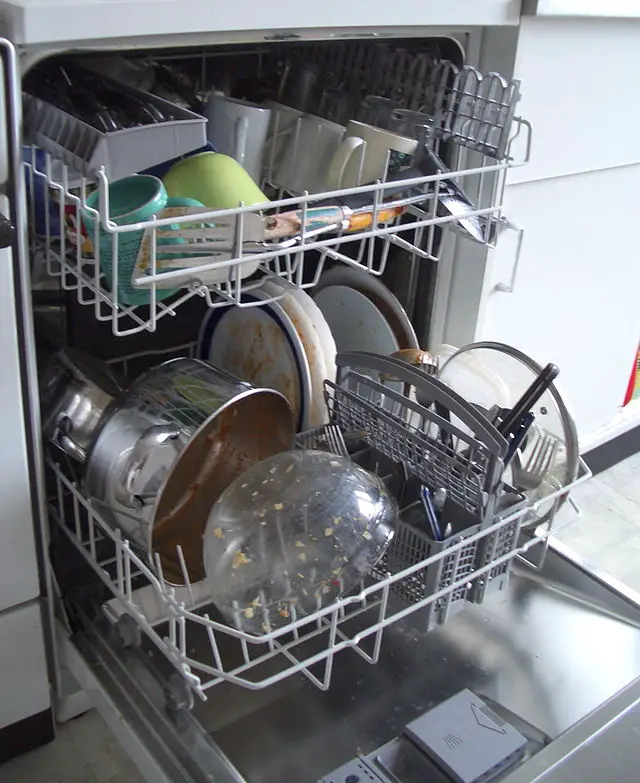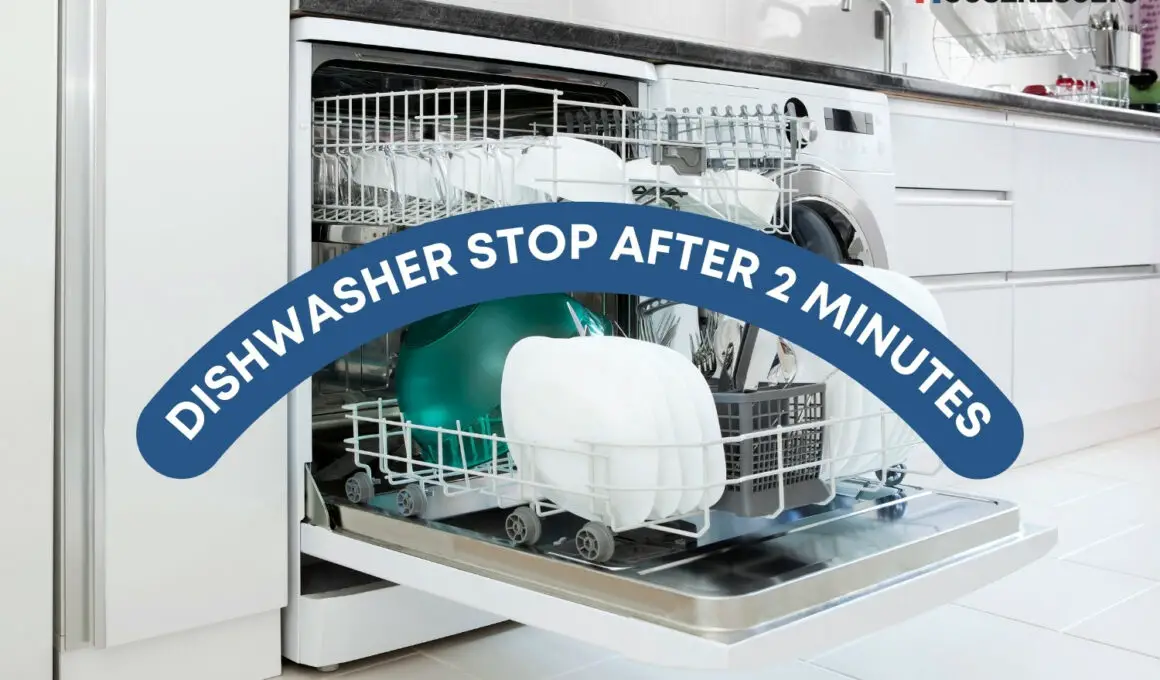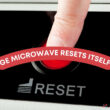Table of Contents Show
I’ve spent my years becoming well-acquainted with every nook and cranny of household appliances, including one of our most trusted allies in the kitchen: the dishwasher. Today, we’re addressing an issue that might be all too familiar to some of you – your dishwasher stops running after just two minutes. Sound familiar?
As anyone who regularly relies on their dishwasher knows, this appliance is more than just a convenience; it’s a time-saving, dish-cleaning powerhouse that allows us more time to do the things we love. But, when it unexpectedly shuts off only a couple of minutes into its cycle, it can turn from a helpful companion into a source of frustration.
From my years of experience, both as a homeowner and as a dedicated appliance enthusiast, I’ve learned that understanding the common causes of this issue can save us a significant amount of time and potentially expensive repair bills.
Knowing what’s going on with our appliances and how to respond is empowering. So, let’s dive in, explore the potential causes for a dishwasher stopping after just two minutes, and more importantly, let’s discuss some straightforward solutions you can try at home.
Why a Properly Functioning Dishwasher is Crucial
Let’s take a moment to consider just why our dishwasher is such an important part of our daily lives. Have you ever stopped to think about how much time you’d spend standing at your sink if you had to scrub every dish, glass, and utensil by hand?
Our dishwashers save us countless hours, not to mention they’re much better at sanitizing our dishes than we could ever be by hand. Plus, they’re more water-efficient too!
Now, as an appliance enthusiast who’s seen (and repaired) my fair share of appliance woes, I can tell you that any disruption to the smooth running of our dishwasher isn’t just an inconvenience. It disrupts the flow of our daily chores and activities, throwing a wrench into our well-planned routines.
Imagine this – you’ve just hosted a fantastic dinner party (post-COVID) of course. The food was a hit, the guests were delightful, and everyone had a great time. Now, all you’re left with is a pile of dirty dishes. You load them up into your trusty dishwasher, hit start, and step away, ready to unwind after an evening well spent. But alas, two minutes in, and the dishwasher grinds to a halt. Not the ending you had envisioned for your perfect evening, right?
So, whether it’s saving time, ensuring sanitized dishes, or simply enabling a smooth household routine, a properly functioning dishwasher is crucial. When it stops working correctly, it’s essential to identify the issue and find a solution as soon as possible.
Common Causes of a Dishwasher Stopping After 2 Minutes

Over the course of my journey as a homeowner and appliance enthusiast, I’ve encountered numerous dishwashers, each with its unique set of quirks and issues. If your dishwasher stops after 2 minutes, it could be due to a range of problems.
Here, I’ll outline the most common causes based on my years of experience. Remember, our objective here is to keep things simple yet insightful, so we’ll avoid deep technical terms and focus on clear, easy-to-understand explanations.
1. Power Issues
Your dishwasher needs a continuous supply of electricity to run a full cycle. Problems like blown fuses, tripped circuit breakers, or loose wiring can disrupt this supply, causing your dishwasher to stop shortly after it starts.
2. Water Supply Problems
Water is, of course, essential for your dishwasher to operate. If there’s a blockage in the supply hose or an issue with the water inlet valve, the dishwasher might not be getting the water it needs to continue running.
3. Overheating Motor
A dishwasher’s motor can overheat due to various reasons like blocked parts restricting airflow, leading to poor ventilation. When the motor overheats, the dishwasher might automatically shut down as a safety measure.
4. Faulty Timer or Control Board
The timer or control board of your dishwasher orchestrates the various stages of a wash cycle. If it’s faulty, it might incorrectly signal the end of the cycle, causing the dishwasher to stop prematurely.
5. Sensor Issues
Modern dishwashers have sensors like thermostats and turbidity sensors. A malfunctioning thermostat could misread the temperature, and a faulty turbidity sensor could incorrectly determine the cleanliness of the water, leading to unexpected stops.
6. Drainage Problems
If the filters or the drain pump of your dishwasher are clogged, the dishwasher may fail to drain correctly. This can result in the dishwasher stopping early in its cycle.
Understanding these common causes is the first step in troubleshooting your dishwasher’s problem.
DIY Solutions to Fix a Dishwasher Stopping After 2 Minutes
Armed with our understanding of the common causes, we’re now ready to tackle some DIY solutions for when your dishwasher stops after just 2 minutes. As an experienced homeowner and appliance enthusiast, I’ve found these steps to be valuable first responses to the issue. Let’s get into it:
1. Checking And Fixing Power Issues
Start by checking the fuse or the circuit breaker associated with your dishwasher. If the fuse has blown or the circuit breaker has tripped, replacing the fuse or resetting the breaker may solve the problem.
Also, ensure the wiring connections are secure. If you notice any loose or frayed wires, it might be best to call in a professional.
2. Checking The Water Supply And Correcting Issues
Inspect the water supply hose for any kinks or blockages and rectify if any. Also, check the water inlet valve. If it’s faulty or clogged, you might need to clean it or replace it.
3. Cleaning And Ensuring Proper Ventilation For The Motor
Regular cleaning can prevent the motor from overheating due to blocked parts. Make sure that the area around the dishwasher is well-ventilated, and that there’s no accumulated debris or dust.
4. Inspecting And Replacing a Faulty Timer or Control Board
If your dishwasher’s timer or control board is not functioning correctly, it could lead to early cycle termination. You can try resetting your dishwasher according to the manufacturer’s instructions. However, if the issue persists, you might need professional help to replace these components.
5. Checking And Replacing Malfunctioning Sensors
If the thermostat or the turbidity sensor is malfunctioning, it can lead to a premature stop in the wash cycle. While replacing these sensors might require a bit of technical know-how, many dishwashers have accessible panels making it easier for you to replace them.
6. Cleaning Filters And Unclogging The Drain Pump
Regularly clean the filters and check the drain pump for any clogs. A clean and clear drainage system allows the dishwasher to drain correctly, reducing the chances of it stopping prematurely.
Remember, while DIY fixes are rewarding and can save us some money, not every problem can be solved at home.
When to Call a Professional
Even with all the DIY enthusiasm in the world, and trust me, as a seasoned homeowner and appliance enthusiast, I have plenty, there comes a point when we need to acknowledge that a problem might be beyond our skill set.
It’s important to know when to call in professional help, not just to save time and avoid further damage, but also for our safety, particularly when dealing with electrical appliances like dishwashers.
Here are some scenarios where you might need to call in a professional:
- Persistent power issues: If your dishwasher’s power issues persist despite checking the fuses, circuit breakers, and wiring, it could indicate a deeper electrical issue. Professional technicians are equipped to handle such complexities safely.
- Complex component replacements: While some parts, like sensors, can often be replaced at home, others, like the timer or control board, can be tricky and require specific knowledge and tools. If you’re not comfortable handling these components, it’s best to call in a professional.
- Recurring or multiple issues: If your dishwasher frequently stops mid-cycle or if there are multiple issues at once, it might suggest a more complex underlying problem. A professional can perform a comprehensive diagnostic and fix the issues effectively.
While it’s empowering to be able to fix minor issues ourselves, there’s no substitute for professional expertise when it comes to complex or persistent problems.
Wrapping it up
We’ve explored a range of issues from power and water supply problems to overheating motors, faulty control boards and timers, sensor malfunctions, and drainage problems.
Along the way, we’ve discussed DIY solutions that you can try at home, and we’ve also talked about the importance of knowing when it’s best to call in a professional.
Appliances like dishwashers are a significant part of our daily lives. They deserve our attention and care. Identifying issues and either fixing them ourselves or seeking professional help ensures they continue serving us effectively for many years.









